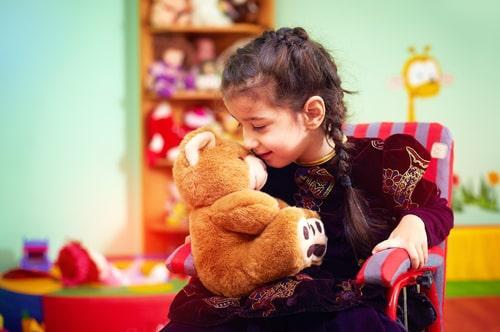Chicago, IL 60601
FREE CONSULTATIONS 312-462-4200
TOLL FREE 833-462-4200
How Is Cerebral Palsy Diagnosed for Infants and Children?
 Certain types of developmental disorders may affect children, leading to issues with the control of their bodies, as well as neurological problems and other health concerns. Cerebral palsy (CP) is one such disorder, and it may be caused by birth injuries that led to damage to a child's brain. However, a cerebral palsy diagnosis may not be made immediately after an injury, and in some cases, parents and medical professionals may not fully understand how a child was affected until they are several years old. Early diagnosis of CP can be crucial since it can ensure that a child will be able to receive treatments to minimize the effects of a condition and help improve their physical and cognitive abilities. By understanding how CP may be diagnosed for infants and children, parents can be prepared to provide the care needed to help their child succeed.
Certain types of developmental disorders may affect children, leading to issues with the control of their bodies, as well as neurological problems and other health concerns. Cerebral palsy (CP) is one such disorder, and it may be caused by birth injuries that led to damage to a child's brain. However, a cerebral palsy diagnosis may not be made immediately after an injury, and in some cases, parents and medical professionals may not fully understand how a child was affected until they are several years old. Early diagnosis of CP can be crucial since it can ensure that a child will be able to receive treatments to minimize the effects of a condition and help improve their physical and cognitive abilities. By understanding how CP may be diagnosed for infants and children, parents can be prepared to provide the care needed to help their child succeed.
Methods Used to Diagnose CP
Signs of cerebral palsy may be initially recognized by parents or by a pediatrician who performs a routine examination, and further tests may be performed to obtain a complete diagnosis, determine how a child has been affected, and create a treatment plan. Methods of diagnosing cerebral palsy include:
-
Developmental milestones: One of the first ways that cerebral palsy may be recognized is by assessing whether a child has met certain milestones in their development within the expected time. If a child experiences significant delays in physical milestones such as rolling over, sitting up without support, crawling, standing up, or walking, or if they have delays in cognitive milestones such as speaking and interacting with others, this may be an indication of CP or another developmental disorder. These observations and concerns about development may prompt a doctor to perform further evaluations.
-
Physical examination: Observations by doctors immediately after a child's birth and at regular checkups during their first few years of life may help diagnose cerebral palsy. Signs of increased or decreased muscle tone may be an early indication of CP. Reflex tests can also be an important factor in a diagnosis, and as a child gets older, a doctor may also examine their posture, the range of motion in their arms and legs, and muscle weakness or spasticity. Based on these examinations, a doctor may use additional tests to gain a better understanding of how a child has been affected.
-
Imaging tests: CT scans or MRIs may be used to create detailed images of a child's brain and identify abnormalities that may indicate CP. These tests may show signs of brain damage in areas of the brain that may affect a child's movement and their ability to balance. Other types of tests, such as X-rays or EOS imaging, may be used to monitor the development of a child's bones and identify areas of concern that treatment may address.
-
Electrophysiological Tests: Diagnostic tests such as electromyography (EMG) and electroneurography (ENG) may be used to measure the electrical activity in the muscles and nerves. These tests can help identify spasticity or rigidity that may be related to cerebral palsy in a child, giving doctors a better understanding of how the child has been affected by a disorder.
-
EEG testing: In cases where a child experiences seizures, an electroencephalogram may be used to help determine whether these issues are caused by CP or another condition, such as epilepsy. The results of these tests can help a doctor determine the full extent of a child's condition so that the appropriate treatment can be provided.
-
Genetic testing: The symptoms of cerebral palsy are sometimes similar to genetic conditions that may affect a child, such as muscular dystrophy. A genetic evaluation can help identify the causes of a child's symptoms and ensure that the proper measures are taken to address developmental concerns.
Contact Our Illinois Cerebral Palsy Lawyers
Early diagnosis and intervention can be important for children with CP, and parents will want to speak to a doctor about their concerns if they notice any developmental delays or abnormalities. With a proper diagnosis, a treatment plan can be created that will help a child address developmental issues and reach their full potential.
To ensure that a family will have the necessary resources to meet the needs of a child with cerebral palsy, Birth Injury Law Alliance, Ltd. can provide guidance and assistance. Our Chicago birth injury attorneys can help identify the causes of a child's condition and work with parents to determine the options that are available to them. To learn more about how we can assist with these cases, contact us at 312-462-4200 and schedule a free consultation.
Sources:
https://www.cdc.gov/ncbddd/cp/diagnosis.html
https://nyulangone.org/conditions/cerebral-palsy-in-children/diagnosis
https://www.nichd.nih.gov/health/topics/cerebral-palsy/conditioninfo/diagnosis





